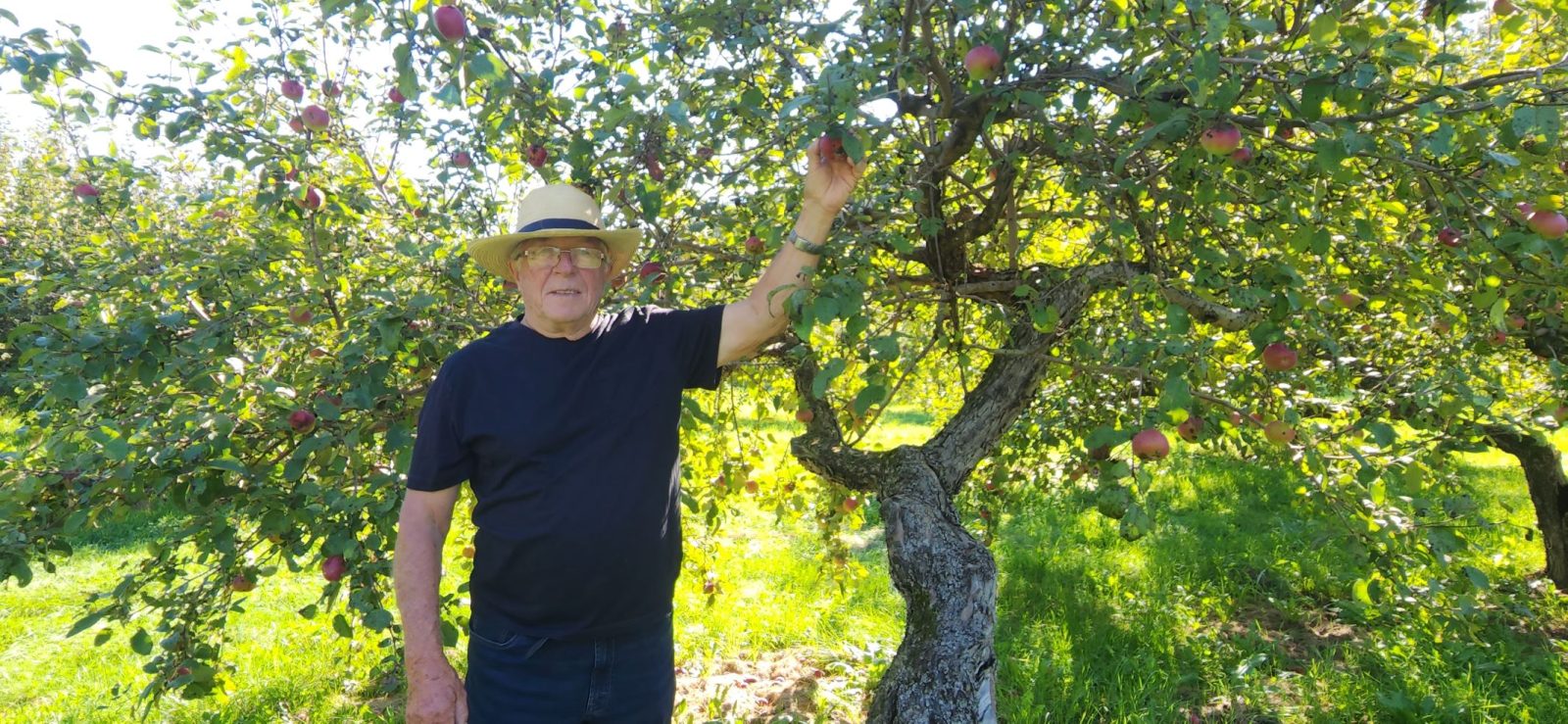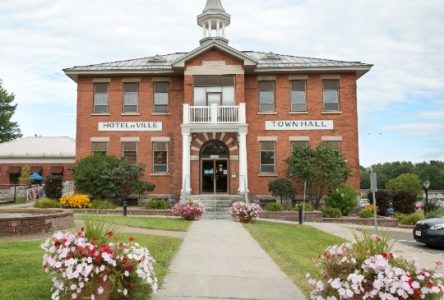Paul Doran has owned Pine Hill Orchard for over 30 years. He’d been in the electronics business all his life, and when he retired, he bought his apple orchard for something to do. The previous owner had only 1200 trees on the 50 acres, but under Doran’s attention that number has quadrupled to 5000 trees, sporting 21 different varieties. Each variety has its own period it blossoms in, so in Doran’s word, “a person can come and pick a different kind of apple than they did last time.”
Doran also said that the orchard recently started growing a new kind of apple called a ginger gold. He described it as a cross between an apple and a pear, and that it retains its crispness even when cut up, with no browning.
Apple pickers must be quick if they want to enjoy the season, though. Doran said that he usually opens the orchard around Labour Day and that, depending on how the weather goes, he’s happy to make it until the end of September. One memorable year, he made it all the way to Thanksgiving.
“There’s a kind of a time, a period,” said Doran. “We’ve been open two weeks now, and judging from what I still have, I think I’m good for another two weeks.”
Residents can come between nine to five on weekdays to pick as many apples as they can carry in one of his decomposable shopping bags. A small bag is $15, a large bag is $25, and a box is $35. The orchard used to have a bunch of wicker baskets on hand for people to pick with, but COVID-19 prompted a switch to containers that visitors can take with them.
There is also a fleet of wheelbarrows at the ready for visitors to transport their haul of apples in, and sometimes families come out and tote their small children around to the orchards. Doran said that apple pickers shouldn’t be discouraged by imperfect apples, as any blemishes are usually only skin-deep. The most prevalent blemish comes from raindrops or morning dew settling onto the apples and magnifying the sunlight, causing burns.
Despite the short picking season, no apples go to waste as Doran presses leftover fruit into cider, which he keeps to sell next year. He used to make fruit wine as well, but after the bottles, corks, labels, and the LCBO’s cut, he was barely making a profit.
“When I close down, it’s not over. Then I start cleaning the trees, because there’s always some apples that weren’t picked because they were too high,” he said. “We have our cider mill over here, and we turn all the apples into cider, and then we deep-freeze the cider to sell the next year because we don’t put any chemicals in it to preserve it. So, when you thaw it out, it has exactly the same taste as when it was bottled.”
Doran also mentioned that the orchard sells honey. He keeps bees on the property due to how important they are for the pollination of the trees, and he sells the honey they produce. It’s better than wildflower honey, he says, because the apple trees that give the bees their pollen lends a sweet, floral aftertaste.
Pine Hills Orchard is located at 1818 St-Félix Road, Bourget, on the edge of Larose Forest.



